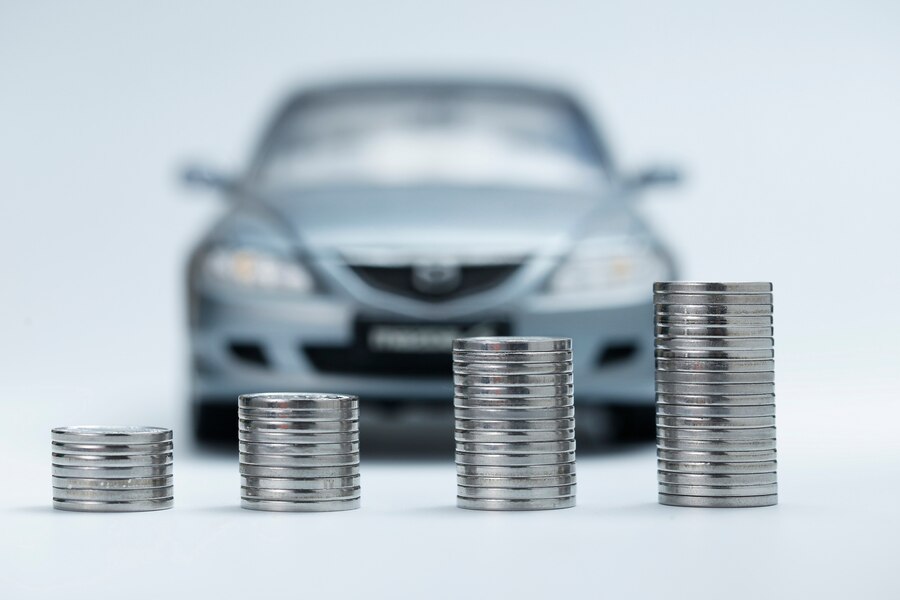Buying a vehicle is a dream for many. Owning a car or a bike gives you the freedom to commute at your own time and pace. However, with every passing year, the prices of vehicles are increasing. Thanks to the growing lending sector in India, you can easily apply for a Vehicle Loan to fulfil your dream of owning a vehicle.
Vehicle Loan – Meaning
A Vehicle Loan is a loan that allows you to purchase two and four wheelers for personal use. Typically, the lender loans the money while the buyer must repay the loan in Equated Monthly Instalments (EMIs) over a specific tenure at a specific interest rate. The EMI comprises a portion of the principal amount and the interest component. Once you repay the loan in full, the lender transfers the vehicle registration in your name.
Your eligibility for a Vehicle Loan depends on your credit score and net (in hand) monthly income. Most lenders offer 75% to 100% of the vehicle’s on-road price, based on its type and price. You can also get a loan to buy pre-owned cars and other previously used vehicles.
What is car loan:-
Owning a car was once a luxurious commodity to have. But in today’s economically developing world, a car is a necessity and convenience to travel from one corner of the ever-expanding city to the other.
Though everybody may not have enough cash to purchase the car with a lump-sum payment, numerous lenders can help you realise your dream of buying the car through a car loan.
Applying for a car loan is now hassle-free, easy, and paperless. Just make a few clicks, and you can submit the car loan application form online. Almost every bank today offers car loans at attractive interest rates. Based on one’s affordability, it is now quite easy to take a car loan and then pay EMIs without really biting into a person’s finances.
You can get a Car Loan to purchase a brand-new car of your preferred brand. Lenders generally offer up to 90% financing of the car’s on-road price, while you have to pay the remaining 10% as a down payment. The on-road price of a new car includes the ex-showroom price, Regional Transport Office (RTO) registration charges, insurance costs, road tax, etc. A Car Loan generally comes with a seven-year repayment tenure. You can repay the Car Loans in affordable EMIs over your chosen tenure.
Loan Settlement vs. Loan Forgiveness
Loan Settlement:
Loan settlement is when the lender agrees to accept a reduced amount as full and final payment of the loan, typically in cases of financial hardship or prolonged delinquency. The borrower negotiates with the lender to pay a lump sum that is lower than the total outstanding amount.
- Impact on Credit Score: Negatively affects the borrower’s credit score, as it is recorded as “settled” rather than “closed” or “paid in full.”
- Eligibility: Usually available when the borrower has defaulted on payments for a significant period, and the lender believes recovering a portion of the loan is better than a complete loss.
- Common for: Personal loans, credit card debts, and sometimes car loans.
Loan Forgiveness:
Loan forgiveness is when the lender completely cancels the outstanding loan balance, typically in cases like government-backed education loans, specific hardship programs, or business relief schemes.
- Impact on Credit Score: Depends on the program, but generally, it has a lesser negative impact than settlement.
- Eligibility: Based on government policies or lender-specific hardship relief programs.
- Common for: Student loans, some mortgage relief programs, and government-backed business loans.
________________________________________
Settling a Car Loan for Less than the Outstanding Balance
Car loan settlement can occur when the borrower is struggling with repayments, and the lender agrees to accept a lower lump sum to close the loan. However, this is not common, as car loans are secured by the vehicle, meaning the lender can repossess and auction the car to recover losses.
Options for Car Loan Settlement:
- One-Time Settlement (OTS): The borrower negotiates a reduced lump-sum payment with the lender.
- Voluntary Surrender & Settlement: The borrower returns the car to the lender, who then auctions it. Any remaining unpaid amount may be negotiated for settlement.
- Repossession & Settlement: If the borrower defaults, the lender seizes the car and sells it. If the sale doesn’t cover the loan balance, the borrower might have to pay the difference.
________________________________________
Eligibility Criteria for Car Loan Settlement
- Prolonged Loan Default: The borrower must have missed multiple EMIs (typically 90+ days).
- Financial Hardship Proof: The lender may require proof of job loss, medical emergencies, or other financial difficulties.
- Negotiation & Approval: The lender must agree to the settlement, which is not guaranteed
- Repossession Process: If the vehicle has already been repossessed, the lender might first attempt to recover dues through an auction.



